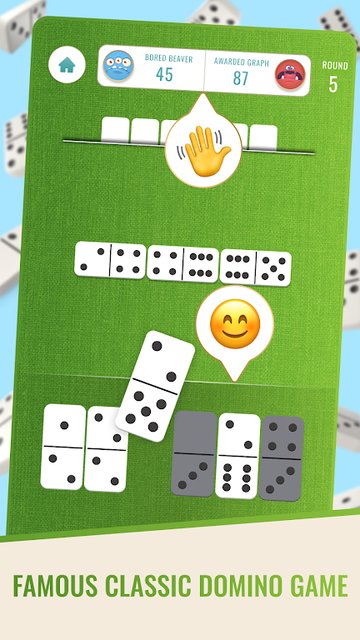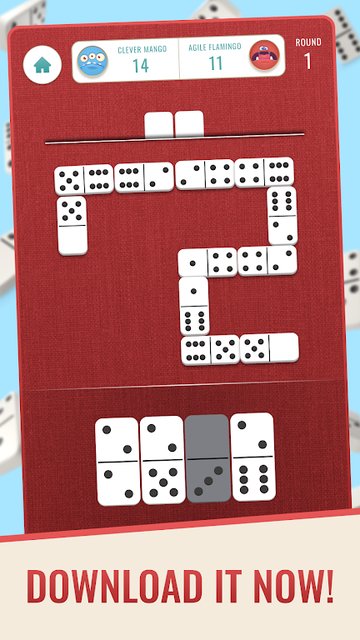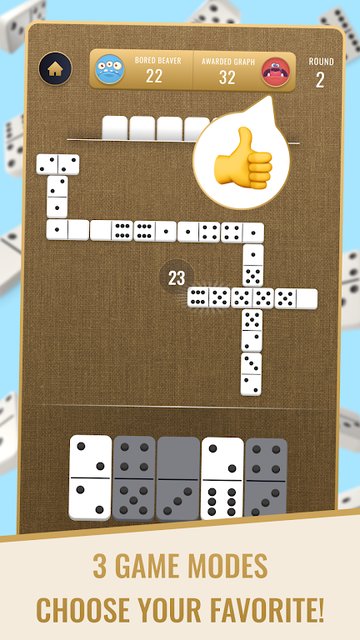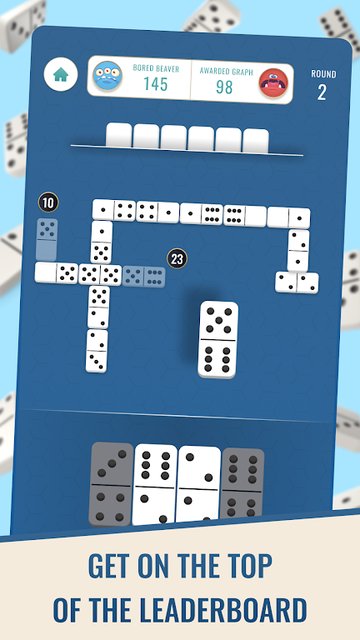Domino, a domino-based puzzle game, originated in China and has been widely distributed around the world. The game is simple yet full of strategy and fun, and is popular with players of all ages.
In Domino, a set of 28 dominoes is usually used. Each domino is divided into two small squares, each with a number of points from 0 to 6. At the beginning of the game, all dominoes are randomly distributed to players, and the undistributed dominoes are placed aside as a pile.
Players take turns placing the dominoes, connecting them together so that the points on adjacent dominoes match. For example, a domino with 3 points on it can only be connected to another domino with 3 points on one side. Players can place dominoes in legal positions on the board to extend the chain of dominoes.
The goal of Domino is usually to place as many dominoes as possible in the process of placing them, and to maximize the chain reaction by arranging the dominoes wisely so as to get the highest score in the final scoring.
This game not only tests the player's strategy and planning skills, but also requires a certain amount of luck. Because the random distribution of dominoes may affect the player's choice and decision. Players need to consider several factors when placing dominoes, such as how to maximize the use of dominoes in their hands, how to block the opponent's chances, and how to get a higher score through a reasonable chain reaction.
There are many different variants of Domino game, such as the traditional linear play, scribble play and square play, each with its own unique rules and strategies. In addition, Domino games can be adapted to different numbers of players, from 2-player matchmaking to multi-player teamwork.
In addition to being a fun family and social activity, Domino games also have a wide range of applications in competitive tournaments. In Domino tournaments at home and abroad, players will show their high skills and strategies and compete fiercely, attracting the attention of many spectators.
Domino Mod Apk v2.3.2(No Ads Free Rewards)
Updated On Apr 16, 2024
 Reward free from advertising
Reward free from advertising
 Reward free from advertising
Reward free from advertising
App NameDomino
Tagnull
Versionv2.3.2
Mod InfoNo Ads Free Rewards
Package Namecom.chorse.domino
CategoryBoard
Size53.52M
MOD features
 Reward free from advertising
Reward free from advertising




New Update

UFL - Soccer Game 2026
0.11.4 + 2589.90MB
Mod Menu / Save Editor

Stick War: Saga
2026.5.2676 + 315.49MB
Unlimited Resources / Unlocked Items / Save Editor

Stick War Legacy
2026.1.476 + 138.24MB
Unlimited Resources / Save Editor

Moto Wheelie 3D
0.101 + 97.24MB
Unlimited Resources

MadOut2: Grand Auto Racing
18.07 + 1354.78MB
Unlimited Resources

Bowmasters
11.0.0 + 251.83MB
Unlimited Resources / Save Editor














